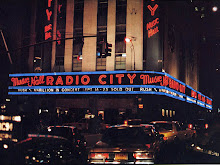 I've been meaning to do a post on this band for quite some time, and didn't really know where to start.
I've been meaning to do a post on this band for quite some time, and didn't really know where to start.To take on the task of writing about and giving an accurate portrayal of The Floyd --- in whole or in part --- is an insanely monumental and very complex task.
It's complicated in that it's difficult not to get siphoned into band dynamics and the back story to the music, so something that should be simple on the surface (pick any song from any album) is actually concealing more complex matters beneath. It makes for a high level of detail and work; I want to be delicate in how I spin my own opinion on facts where, when I go into them, I had better be dead-on accurate when I provide them.
There's so many aspects about this band that are utterly fascinating...and there's no good place to really start. Which album does one start with? ...or does it begin with an analysis of one of the band members...or in their case, former band members, which involves tragedy with perhaps the most mysterious figure in rock and roll history AND the most tortured soul in music history who has actually lived into his 60s to talk about it?
...or does one begin perhaps with producer Alan Parsons, the magician behind the recording to The Dark Side of the Moon --- the premier rock album for the ages by which all others after it have been compared? Experimenting with concept albums and studio technology and breaking free of conventional pop-song formats, Pink Floyd prefigured the progressive rock of the '70s and ambient music of the ’80s.
...and we haven't even begun getting into the visual brain melt of their live shows, from their innovation of psychedelia in the 60s to The Wall tour that spanned 1980-81. DEFINITELY more on that another time.
 Pink Floyd is an enigma...I can't think of a more appropriate way to describe them. Going through the band's catalog reveals a journey with more operatic twists and turns --- not only in the music itself, but in the back-story of the band and its members as the catalog of the group unfolds. That's where things get really interesting.
Pink Floyd is an enigma...I can't think of a more appropriate way to describe them. Going through the band's catalog reveals a journey with more operatic twists and turns --- not only in the music itself, but in the back-story of the band and its members as the catalog of the group unfolds. That's where things get really interesting.EVERYTHING one can imagine happens, and EVERYTHING you can't imagine.
The band didn't "manufacture" it's mystery like lots of other bands try to do these days. With Pink Floyd, things just happened and events simply unfolded...and the right combination of the wrong personalities brought out the very best and very worst in what a rock band can offer.
So let's actually give a half-assed attempt at starting somewhere.
To understand Pink Floyd, you have to try to understand the story of Syd Barrett (noticed that I said TRY). He passed away in July of 2006.
Syd is the Rosetta Stone to figuring out the Floyd and what made it tick. However, the man is shrouded in mystery due to several factors. If you can figure
 out Syd, you're probably God.
out Syd, you're probably God.Syd launched the band as it's primary songwriter and leader in the mid-1960s, culminating with the band's debut album The Piper at the Gates of Dawn, which I consider to be the greatest psychedelic album of all time (a review of Piper is a post for another day).
As a result of experimentation with psychedelic drugs, coupled with a personality disorder of some kind, Syd essentially lost his mind. In this day his symptoms would have been identifiable and treatable, however in 1968 there was very little in the way of assistance available.
As he became more withdrawn and his state began severely affecting his live performance, the band brought on guitarist and schoolmate David Gilmour, who learned all the parts and filled in. After performing as a quintet for a very brief period of time, Syd and the band parted ways, and he wandered into obscurity...at least that's how the story goes.
Any other band would have fallen apart as a result of their lead guitarist, lead vocalist and primary songwriter falling off the map...but Floyd powered on, and Roger Waters became the band's de facto leader and songwriter.
However the spirit of Syd continued to inspire and power the band ahead in a variety of ways, much like the booster rocket propels spacecraft out of the atmosphere. Syd's momentum, looking in hindsight, only helped to propel the band to heights unimaginable. I must say to, well, as high as the dark side of the moon.
Syd's personality and story would resurface in encrypted ways on future Floyd records; notably
 1975's Wish You Were Here and 1979's The Wall. Most of, if not all of the Syd-related portraits called out in the Floyd's music would be cast forth through the songwriting of Roger Waters.
1975's Wish You Were Here and 1979's The Wall. Most of, if not all of the Syd-related portraits called out in the Floyd's music would be cast forth through the songwriting of Roger Waters.As the other founding member of Floyd, Roger has never appeared to get over the guilt and sadness of losing Syd, his former bandmate.
With Syd's departure, and cast into the unlikely role of primary songwriter --- in a twisted ball of wistfulness, brotherly love, and in wrestling with his own demons --- Roger Waters would catapult his songwriting facility to a place where nobody else has ever gone: baring for the rest of the universe his tortured soul in ways that are unparalleled in rock music.
I can't think of another songwriter who has as artfully and visually allowed his listeners access to the inside of their mind and all it's dark places. With Roger, this exercise culminated through the process of two works: The Wall and The Final Cut, the latter of which was released in 1983 and was the last Floyd record in which Waters would participate.
Unfortunately, in the process of those works, the band split up due mainly to Roger's obsessive nature with his vision. However, stories seem to indicate there was a breach in the dam as early as the mid-1970s during the Wish You Were Here sessions, several years prior to those projects.
Unfortunately while the chemistry began to erode on the Wish You Were Here project, the Floyd kept powering ahead with the famous quartet that we all know for as long as it could --- as the members Rick Wright (keyboards, vocals, sax), Nick Mason(drums), David Gilmour (guitars, vocals) and Roger Waters (bass, vocals) understood the importance of the band and how special it was.
 Following Roger's departure, David Gilmour would pick up what remained of Pink Floyd, dust it off the best he could, and power it through two more respectable albums and tours --- essentially retiring the band in the 1990s until a miraculous series of events would put the classic quartet (including Roger) back onstage together for one last performance in 2005.
Following Roger's departure, David Gilmour would pick up what remained of Pink Floyd, dust it off the best he could, and power it through two more respectable albums and tours --- essentially retiring the band in the 1990s until a miraculous series of events would put the classic quartet (including Roger) back onstage together for one last performance in 2005.The stories of this band and its dynamics are endless...maybe I'll get to move through a few of them.
Oh, and then there's the music itself! I might as well give a brief mention to that before I sign off...my all-time favorite Floyd song is the masterpiece "Echoes" --- taking up the second side of the record album Meddle --- clocking in at a whopping 23 and a half minutes. In my opinion, that tune combines everything experimental about their 60s work with their more progressive 70s work --- bringing out the quintessential Floyd sound...and the fact that they performed it live in the middle of the Pompeii ruins...
...that's YET ANOTHER story for another day! S
A rundown of the Pink Floyd studio album discography with original material (does not count soundtracks, live albums, or videos):
- The Piper at the Gates of Dawn (1967)
- A Saucerful of Secrets (1968)
- Umma Gumma (1969)
- Atom Heart Mother (1970)
- Relics (1971 - mixed compilation contains "Arnold Layne," "See Emily Play" and various b-sides)
- Meddle (1971)
- The Dark Side of the Moon (1973)
- Wish You Were Here (1975)
- Animals (1977)
- The Wall (1979)
- The Final Cut (1983)
- A Momentary Lapse of Reason (1987)
- The Division Bell (1994)






















